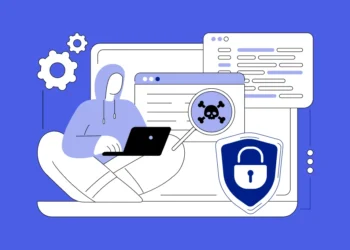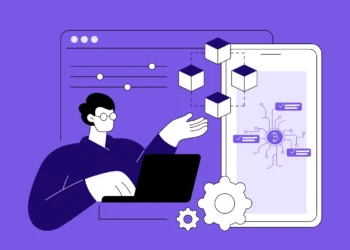We are living in the 21st century, a time where everything around us is going digital. From schools and colleges to corporate offices and training centers, the way we learn and share knowledge is evolving faster than ever. In this fast-paced world, traditional learning methods don’t always fit into everyone’s schedule. Our well-designed LMS software development in Bangalore and eLearning software development in Bangalore are here to help. For example, students already spend 8–9 hours at school and still need extra hours for homework. It’s not practical for them to travel again for coaching and pay high fees just to sit in crowded classes with limited learning.
That’s where LMS software development and eLearning software development come in as game changers. These platforms make learning easier, more affordable, and accessible anytime, anywhere. With a good LMS, learners can study at their own pace, access quality content, take tests, and even earn certificates from their homes. So, isn’t it better to pay once for an LMS and train yourself properly than waste time, money, and energy in outdated ways?
What is LMS Software Development?
LMS is short for Learning Management System. It is software that allows schools, colleges, coaching institutes, and even corporate houses to keep their learning material and training courses online. Just like a real class but it’s now your own. Where you are learning and improving individually by giving daily quizzes and getting appreciation, the most important feature is if you have an exam tomorrow and you need someone to explain a topic at 12 PM so you just can’t directly call your teacher for this but LMS has got you. Just search the topic in LMS software and rewatch and relearn the topic.
The trainer or teacher can put up lessons, notes, and video lectures. Students can enroll in courses, take quizzes or tests, and engage with the material at any time, from any location. One of the greatest benefits of an LMS is that it keeps track of progress, so both the learner and the teacher can see how much was finished and what was left. And the best part is you got the completion certificate at the end of your training program.
These platforms are now contributing effectively to education and many more fields. Students are using LMS-based platforms such as College Vidya to obtain their degrees online, while others are studying for challenging exams such as JEE and NEET through online learning portals. Whether it is formal education or skill training, LMS software is making learning flexible, structured, and future-proof.
Who Should Use a Learning Management System?

LMS software development in Bangalore is now not just for schools and colleges. Today, they’re being used across every sector and by any organization that offers training or learning programs. An LMS helps make the entire process of learning and training easier, faster, and much more organized.
1. Enterprises
Are you a startup? small business? or a large, well-established enterprise? Us as a LMS software development In Bangalore can make a big difference in your training process. Manual training sessions, quizzes, and tracking results can take a lot of time and may not always be accurate. LMS helps companies train employees, onboard new team members, run skill-building sessions, and keep everything in one place. It saves time, cuts down costs, and makes sure everyone learns at the same pace.
2. Educational Institutes
When we say educational institutes, we’re talking about a wide range, from school students learning the Pythagorean theorem to UPSC aspirants studying the Indian Constitution. LMS platforms can be customized to suit every learning level. Schools, coaching centers, and universities can use LMS to upload lessons, take online tests, track student progress, and issue certificates with just a few clicks.
3. NGOs and Government Training Programs
Many NGOs and government departments run training programs for teachers, workers, or rural learners. An LMS helps them reach remote areas, manage courses digitally, and ensure everyone gets equal access to learning. It also helps track how well the training is going and where improvements are needed.
How to Choose the Right LMS Software?

Choosing the right LMS software is very important it should align with your values, goals, vision, and mission. In today’s world, there are countless LMS options available, each designed for different fields and audiences. So, before selecting an LMS for your organization, make sure it matches your training style and learning needs. Here are a few key things to keep in mind:
1. Easy to Use
The LMS should be simple for both you and the learners. A user-friendly interface with a clean dashboard, smooth navigation, and mobile compatibility can make the learning experience much better and more accessible.
2. Know Your Audience
Different LMS platforms are built for different users. Choose software that fits your audience. For example, if you’re a school teacher, go for an LMS that includes engaging visuals, graphics, and interactive elements to keep children interested.
3. Match Your Requirements
Every organization has different needs from an LMS — whether it’s security, type of content, video support, certification features, or tool integration. List down your requirements and check if the LMS can meet them effectively.
4. Budget Matters
LMS software comes in various price ranges. You don’t always need to go for the most expensive one. Many budget-friendly options offer excellent features that can meet your learning goals. Take your time to compare plans and pick the one that best suits your needs and budget.
5. Always Book a Demo First
Done with shortlisting the best who can match your values? Hold on, now book a demo for each one. Experience the platform as a user, not as a leader or entrepreneur. See how it feels to use it. Also, take feedback from others (students, trainers, employees) to understand their comfort level.
Conclusion
The goal of new-age digital learning is to make education smarter, faster, and more accessible, and LMS software is doing exactly that. Whether it’s schools, coaching centers, or large enterprises, everyone is now shifting towards digital solutions to improve learning outcomes.
The key is to choose the right LMS or e-learning software that matches your audience, goals, and teaching style. Once you have the right platform in place, training and learning can become not just easier but also more effective and engaging.















